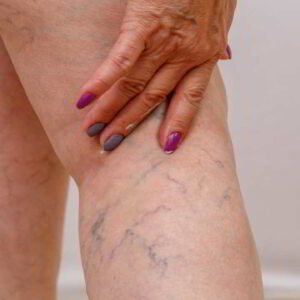Everyone dreams of thick, healthy, and luscious hair, but achieving it often feels like chasing a myth. From expensive treatments to endless product trials, many people struggle to unlock the secret to stronger and fuller strands. But what if the answers were simpler than you thought? A Hair Specialist Doctor In Dubai sheds light on some of the most powerful, yet often overlooked strategies that can drastically transform your hair health.
Understanding the Root of Hair Problems
Before diving into solutions, it’s important to understand the root causes of weak and thinning hair. Hair health isn’t just about what you apply externally—it’s heavily influenced by internal factors such as stress, diet, lifestyle habits, and even how you handle your hair daily. Recognizing these influences can help you target the real issue, instead of masking the symptoms.
Hair follicles are living structures, and they require consistent nourishment, stimulation, and care. The hair cycle—anagen (growth), catagen (transition), and telogen (resting)—must stay balanced for optimal hair density. Disruption in this cycle leads to visible thinning or increased hair shedding.
Daily Habits That Make a Big Difference
Many underestimate the power of small changes. From how you wash your hair to the type of pillowcase you sleep on, daily habits can either support or sabotage your hair goals. Here are some daily routines recommended by hair professionals to keep your strands thriving:
-
Gentle Cleansing: Avoid washing your hair with hot water or harsh shampoos. Opt for sulfate-free formulas and wash only when necessary to prevent over-drying.
-
Avoid Heat Overload: Excessive blow-drying or straightening weakens the hair shaft. Always use a heat protectant and limit the use of heated tools.
-
Proper Drying Technique: Instead of rubbing your hair with a towel, gently pat it dry or wrap it in a microfiber towel to prevent breakage.
-
Mindful Brushing: Use a wide-tooth comb or detangling brush, especially on wet hair. Always start from the ends and work your way up to avoid pulling.
Nutrition: The Invisible Power Behind Hair Strength
What you eat directly reflects on your scalp and strands. A balanced diet rich in protein, iron, biotin, and vitamins A, C, D, and E supports hair follicle function and structure. Including leafy greens, lean meats, eggs, nuts, and seeds helps maintain a healthy scalp environment.
Hydration is equally critical. Dehydrated hair becomes brittle, dull, and prone to breakage. Make sure you’re drinking enough water daily to support not just your body but your scalp’s moisture levels too.
Scalp Health: The Foundation of Hair Growth
One of the most common insights from a Hair Specialist Doctor is the critical role of the scalp. Think of it as the soil in which your hair grows. If the scalp is dry, oily, clogged, or inflamed, hair growth will naturally suffer.
To maintain scalp health:
-
Exfoliate Gently: Use a scalp scrub or massage brush once a week to remove dead skin and product buildup.
-
Oil with Purpose: Natural oils like coconut, argan, or castor oil can nourish and stimulate the scalp when massaged regularly.
-
Avoid Harsh Chemicals: Hair dyes and chemical treatments can irritate and damage the scalp. If used, ensure there’s adequate time between sessions for recovery.
Stress and Hair: The Silent Link
Chronic stress triggers hormone imbalances that can cause hair to prematurely enter the shedding phase. High cortisol levels have been linked to conditions like telogen effluvium and alopecia areata. Learning to manage stress through meditation, regular exercise, and quality sleep can significantly impact hair health.
Even more, engaging in relaxing activities or taking intentional breaks from work can create a noticeable difference not just in your energy but also in the fullness and resilience of your hair.
Choosing Hair Products Wisely
The market is flooded with shampoos, conditioners, and styling products claiming to promote hair growth and thickness. However, not all products live up to their promises. Reading ingredient labels is crucial. Avoid products with alcohol, parabens, and sulfates that can strip hair of natural oils and cause long-term damage.
Instead, look for ingredients like:
-
Keratin: Strengthens the hair shaft.
-
Biotin: Encourages growth and strengthens roots.
-
Niacinamide: Improves scalp circulation.
-
Panthenol (Vitamin B5): Adds moisture and shine.
Protective Styles and Smart Styling Choices
The way you style your hair can either protect or damage it. Tight ponytails, braids, or buns put stress on the hairline and can lead to traction alopecia over time. Choose looser styles and rotate them to avoid repeated tension in the same areas.
Additionally, sleeping with silk or satin pillowcases reduces friction and prevents split ends and breakage. If you use hair accessories, select those without metal parts or rough edges.
Monitoring Progress and Staying Consistent
Hair doesn’t grow overnight. In fact, the average growth rate is about half an inch per month. That’s why consistency is key. Make a habit of tracking your hair’s progress through pictures every few weeks. This will help you assess what’s working and adjust your routine accordingly.
Patience, combined with informed care, yields real results. By following professional advice and avoiding harmful practices, you’ll gradually see your hair becoming stronger, fuller, and more resilient.
Final Thoughts
Achieving healthier hair is not about quick fixes but building better habits and understanding what your hair truly needs. As emphasized by a Hair Specialist Doctor the secret lies in a holistic approach—balancing nutrition, scalp care, stress management, and smart styling. If you’re consistent and mindful, you’ll not only stop hair fall but also nurture a crown that grows in strength and beauty every day.





